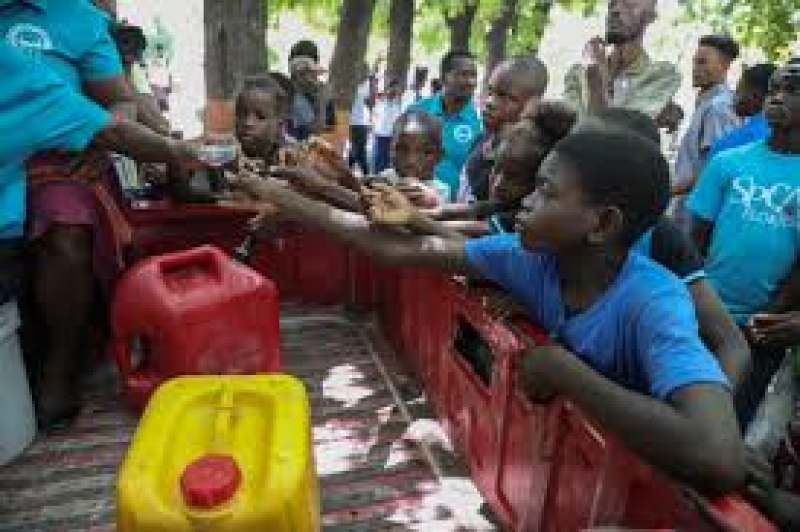- Bangladesh Polls: Campaign Ends as Voters Weigh Pledges |
- Bangladesh Heads to First Gen Z-Driven Competitive Poll |
- EC Lifts Mobile Phone Ban, Bars Photos Inside Booths |
- Youth participation vital to BD’s democratic future: C’wealth Group |
- Stocks retreat on week’s first trading day as turnover drops |
Over 6,000 Flee Homes in Haiti Following Deadly Gang Attack

In the wake of a brutal gang attack in central Haiti, nearly 6,300 individuals have been forced to abandon their homes, according to a report from the U.N.’s migration agency. The assault, which took place in Pont-Sondé, resulted in at least 70 fatalities.
Almost 90% of the displaced residents are currently seeking shelter with relatives, while 12% have found refuge in temporary accommodations, including a school, as reported by the International Organization for Migration last week.
The violent incident occurred early Thursday morning, prompting many to flee under the cover of darkness. “Gang members burst in, shooting and looting. I barely had time to grab my children and escape,” recounted 60-year-old Sonise Mirano, who is now camping in a park in the coastal city of Saint-Marc.
In the aftermath, bodies were discovered scattered across the streets of Pont-Sondé, many showing signs of execution-style killings, according to Bertide Harace, spokesperson for the Commission for Dialogue, Reconciliation, and Awareness to Save the Artibonite. Initial death toll estimates were around 20, but as rescue efforts continued, more victims were uncovered, including a young mother and her newborn.
Prime Minister Garry Conille pledged that those responsible would face justice. “We must apprehend them, hold them accountable, and provide restitution to the victims,” he stated during a visit to Saint-Marc on Friday.
The U.N. Human Rights Office expressed horror over the attacks, while the European Union condemned the violence, highlighting the escalating threat posed by criminal gangs to the Haitian populace.
In response to the violence, Haiti's government deployed an elite police unit from Port-au-Prince to Pont-Sondé and dispatched medical supplies to the region’s overwhelmed hospital. Conille assured the community that police would remain in the area as long as necessary, acknowledging the challenges ahead. “The police cannot do this alone,” he urged.
Gang violence has surged across the Artibonite region, which is crucial for Haiti's food supply. Thursday’s massacre marks one of the most devastating incidents in recent years. Similar attacks have plagued the capital, Port-au-Prince, where gangs control approximately 80% of the territory, often targeting civilians amid turf wars.
Currently, over 700,000 individuals—more than half of whom are children—are internally displaced across Haiti, marking a 22% increase since June, according to the International Organization for Migration. Port-au-Prince alone hosts a quarter of these displaced persons, many living in overcrowded conditions with limited access to basic services.
Those forced to flee are primarily relying on family support, but hosts face significant challenges, including food shortages, overwhelmed healthcare systems, and a scarcity of essential supplies. The crisis continues to deepen as communities grapple with the consequences of pervasive violence.

